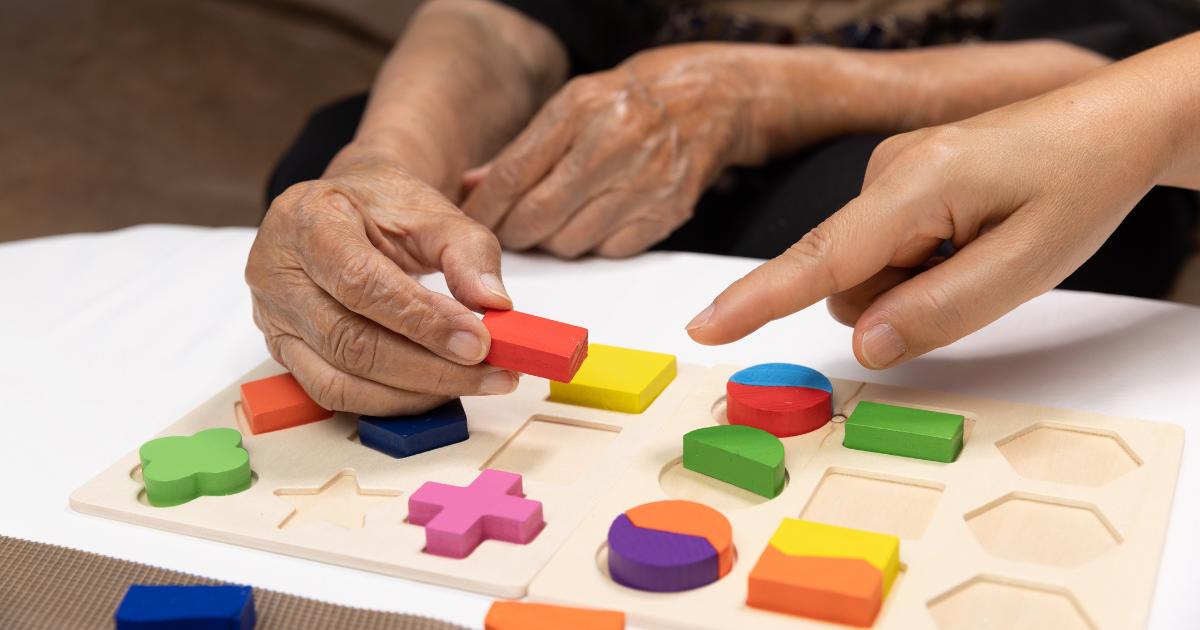
As people get older, changes in memory and thinking are common, but not all changes are signs of something serious. So how do you know what is normal and what might be cognitive decline?
Let us start with the basics.
How Brain Function Naturally Changes With Age
As you age, your brain changes like the rest of your body. Normal cognitive aging often means:
- Slower recall: You may still remember the information, but it takes more time to access it.
- Less multitasking: It becomes harder to juggle several tasks at once.
- Occasional forgetfulness: You might misplace your keys or forget why you entered a room.
These changes are not usually a cause for concern. You can still make decisions, manage your daily routine, and learn new things. It just takes a little more effort sometimes.
What Is Cognitive Decline?
Cognitive decline means a gradual loss in how well the brain works over time. It might show up as trouble remembering things, staying focused, or solving problems.
Some decline is a regular part of aging. But it may point to something more serious when it becomes more noticeable or affects daily life.
Cognitive decline can look different for everyone, but you might notice:
- Forgetting names or appointments more often.
- Struggling to find the right word.
- Taking longer to process information.
These small shifts are part of the natural aging process. But if changes worsen or start interfering with independence, that is when to pay attention.
Common Signs and Symptoms to Watch For
Not every memory slip means something is wrong. Some changes are a regular part of getting older. Others might be early signs of cognitive decline. Knowing what to watch for will help you figure out when to pay closer attention or talk to a doctor.
You may notice:
- Short-term memory lapses – This is often one of the first signs. It might show up as forgetting something you just heard or said.
- Repeating questions – Asking the same thing repeatedly, even after getting an answer.
- Confusion with time or place – Getting lost in familiar areas or losing track of the day or season.
- Trouble managing money or daily tasks – Struggling with bills, recipes, medication routines, or planning activities.
- Language issues – Pausing mid-sentence, forgetting words, or calling objects by the wrong name.
Unlike normal aging, these symptoms tend to get worse over time. They can also cause frustration or worry for those experiencing them or close family members who notice the changes.
If any of these signs feel familiar, it is worth talking to a healthcare provider. Catching these changes early will lead to better support and care options moving forward.
When Does Cognitive Decline Typically Start?
Cognitive decline can begin as early as your 50s or 60s, though it may initially be subtle. Many people start to notice small changes around age 65.
Even if memory changes have already begun, a healthier lifestyle can help slow further decline and improve overall well-being. For more help with changes you can make, read:
- Simple Habits That Support Brain Health & Prevent Cognitive Decline
- Best Cognitive Exercises to Improve Memory and Focus
- The Role of Nutrition in Memory Care
- A Comprehensive Guide to Brain Health for Seniors
- Creating a Mental Wellness Plan for Long-Term Cognitive Health
It is never too early or too late to make a change. Starting healthy habits now helps reduce your risk of cognitive decline later. If changes have already started, these steps will help you stay more independent, confident, and connected as you age.
Cognitive Decline vs. Dementia
So how do you tell the difference between normal changes, cognitive decline, and something more serious like dementia?
The most significant difference is how much it affects your daily life.
- Normal aging might mean you forget a name but remember it later.
- Mild cognitive decline could mean you need reminders more often, but you still manage your schedule.
- Dementia means memory and thinking problems are so strong that they interfere with everyday tasks like managing money, cooking, or getting around town.
In short, it comes down to how well a person can still function. If someone struggles to keep up with conversations or forgets how to do familiar things, it may be more than normal aging. That is when it helps to get a professional opinion.
For a closer look at these early warning signs, read Mild Cognitive Impairment and Early Warning Signs of Dementia & Alzheimer’s.

Red Flags: When to Be Concerned
It is normal to forget things occasionally or need more time to process information as you age. However, when memory loss or confusion starts to affect how someone lives each day, it may be a sign of something more serious.
When Symptoms Affect Daily Life and Independence
One of the biggest red flags is when a person can no longer manage daily tasks they used to handle without trouble. This might include:
- Forgetting to pay bills or missing appointments regularly.
- Getting lost on the way to familiar places.
- Struggling to follow a recipe, use a phone, or take medications correctly.
- Needing help with dressing, hygiene, or basic household chores.
These are not just memory slips. They signal that cognitive skills (like planning, judgment, and decision-making) are starting to break down. That is when it is time to get a professional evaluation.
Behavioral and Emotional Changes
Cognitive decline can also change the way a person acts or feels. These changes may be subtle at first. But if they start to affect relationships or daily routines, they should not be ignored.
Watch for:
- Sudden mood swings or irritability
- Withdrawal from social activities or hobbies
- Signs of depression, anxiety, or confusion
- A change in personality, such as becoming suspicious or fearful without cause
Increased Risk Factors With Aging
The risk of cognitive decline increases with age, especially after age 65. But that does not mean it happens to everyone. Certain factors raise the chances, including:
- Family history of Alzheimer’s or dementia
- Heart disease, diabetes, or high blood pressure
- Past head injuries
- Poor sleep, lack of exercise, or a diet low in nutrients
- Smoking or excessive alcohol use
These health issues affect blood flow and brain health, speeding up cognitive changes in older adults. Paying attention to these risk factors and making healthy lifestyle changes will help reduce the risk.
Getting Help: Diagnosis and Next Steps
If you notice changes in memory, thinking, or behavior – either in yourself or someone you love – it is important to speak up. You do not need to wait until things get worse. In fact, the sooner you act, the better.
When to Talk to a Doctor or Memory Specialist
You should talk to a healthcare provider if:
- Memory problems are getting worse or happening more often.
- Daily tasks are becoming harder, like managing money, driving, or cooking.
- There are noticeable changes in mood, personality, or behavior.
- Friends or family members are pointing out concerns.
A doctor can start with a basic memory screening and physical exam. From there, they may refer you to a memory specialist or neurologist for more detailed testing. These evaluations help rule out other causes (like vitamin deficiencies, thyroid issues, or medication side effects) and help pinpoint the type and stage of cognitive decline, if present.
The Role of Early Detection in Care Planning
Catching cognitive changes early makes a real difference. It allows:
- Time to plan for future care and decision-making
- Access to treatments and therapies that may slow progression
- Better support for caregivers and family members
- A greater chance of independence for longer.
Early detection also helps families understand what to expect. It opens the door to education, resources, and support that ease the road ahead.

Support From Keystone Health
At Keystone Health, we offer care that goes beyond diagnosis.
Our Center for Geriatrics provides expert support for older adults, including those facing memory or cognitive challenges. Our team understands the unique needs of aging patients and works closely with families to develop personalized care plans.
If you are concerned about memory loss or changes in thinking, our Dementia Care Services can help. We offer:
- Memory evaluations
- Ongoing care coordination
- Family education and support
- Resources to help manage daily life and long-term needs
You do not have to figure it out on your own. Keystone Health is here to help you take the next step with confidence and compassion.
Schedule a consultation with our senior care specialists today.
Moving Forward With Confidence
If you have concerns about a loved one or yourself, do not wait. Checking in regularly, starting conversations, and seeking help when needed are all essential parts of caregiving and aging well.
